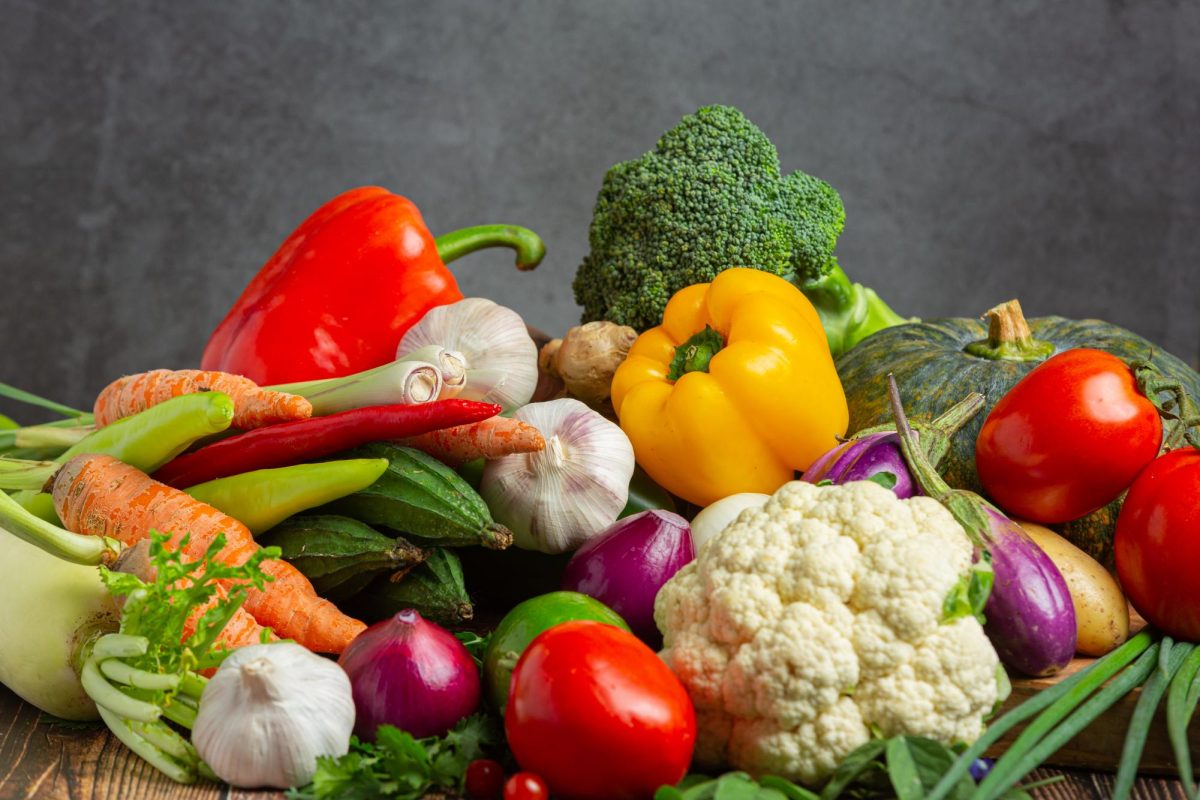The vegetarian diet has gained popularity amongst many teens throughout the twentieth century.
The vegetarian spectrum from omnivorous to vegan has expanded throughout the past few years. Some of the popular choices such as standard vegetarianism, lacto-vegetarianism, pescetarianism, and veganism all contain different requirements.
Similarly to the wide variety of dietary restrictions, the motives for the millions of vegetarians worldwide vary immensely. Some decide to restrict their diets for health concerns, others for global or cultural trends, some for religious purposes, some for their environmentally active duties, and some for other reasons.
“I have been vegetarian for a long time,” said senior Jeet P. “I care about the planet and the animals that live on it, and I am excited to be a part of such a movement.”
There are many Americans that are disturbed by the meatpacking and farming industries, and have decided to take a stand against it. Organizations such as Science Honor Society and the Environmental Action Club have worked towards a greener tomorrow for these reasons as well.
“Environmental Action Club competes yearly in the Long Island Envirothon,” said senior Farah R. “The hardest challenge is always the presentations where we have to present a solution to a global environmental issue to a panel of judges […] such as transportation or building usage. I think it’s really cool how we are encouraged to research about waste management and energy sustainability, since they are real world problems that impact us.”
Climate change and global warming have proven extremely impactful, arising in several political debates, media arts projects, and more. Instagram accounts such as Impact and Environment have spread reports, planned events, and more.
A multitude of social media accounts and podcasts have been actively dedicated to fighting against the same issues. The movement has been closely associated with slogans such as “going green” or phrases such as “animals are friends, not food,” which has been efficient in spreading the important cause.
While the vegan diet has grown tremendously with help from modern technology, it has been around for thousands of years. Vegetarian ideals can be found in many cultural practices, all being prevalent well before the rise of social media.
“Halalism is similar to being kosher or vegetarian. They all have their restrictions, but being halal is more connected to the moral and religious intent behind killing an animal,” said senior Farah.
A common difficulty faced by many American vegetarians is the lack of food options provided by cafeterias and restaurants. However, vegetarian substitutes are on the rise, especially in foreign nations. Many communities embed vegetarian-based diets into their identities, and deserve representation at any given restaurant.
“As a high schooler, I have been successful in bringing halal food into the cafeteria kitchen,” said Farah.
Alongside the ethical choices tied to vegetarianism, it provides many with a healthier diet, without the health deficits of red meat.
“I chose to become pescatarian to remove harmful nutrients from my body, while still obtaining the right amount of protein and B12 through foods like eggs, vegetables, substitutes, soy, and vitamins,” said senior Ari S.
While the vegetarian diet may seem challenging or daunting at first, the positives might outweigh the struggle. The term “flexitarian” has also been coined to describe someone who agrees with the causes and desires the benefits, but is unable to meet the dietary restriction the entire time.
Whether it be for the cultural movements, religious beliefs and values, the health benefits, the environmental concern, or something else, the vegetarian diet has gained traction as many Americans make the commitment to “go green.”◼️










